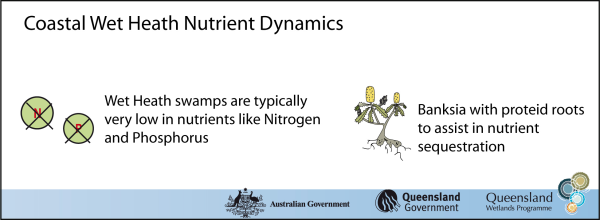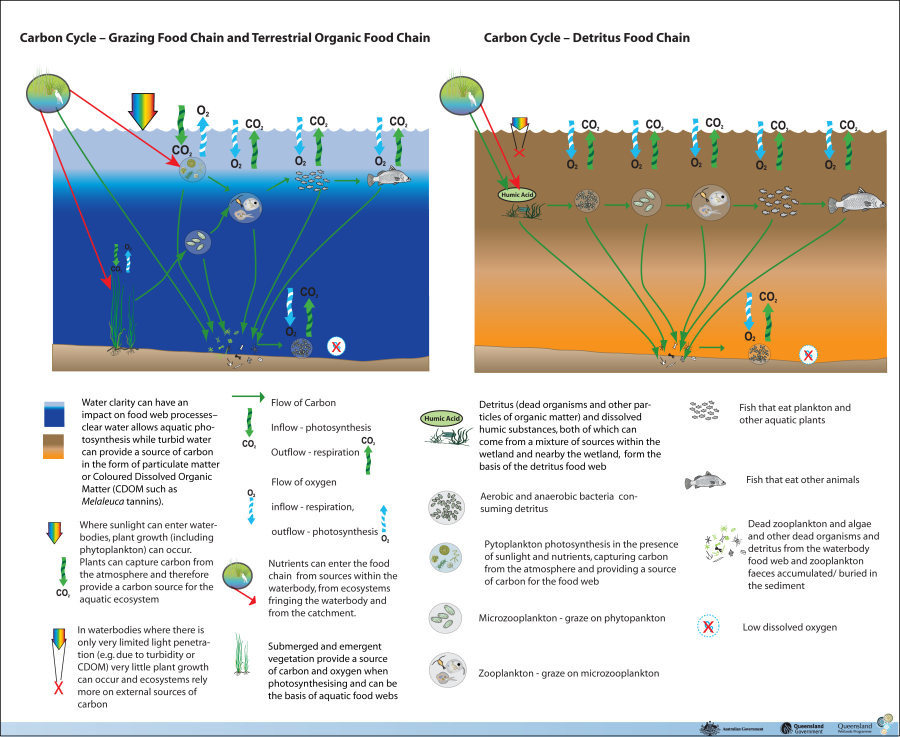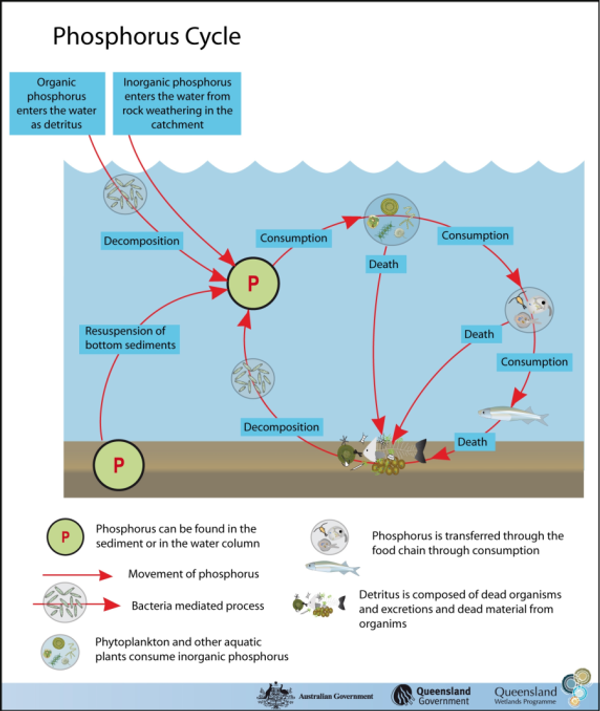|
|
Coastal and subcoastal floodplain wet heath swampCoastal and subcoastal floodplain wet heath swamp – Nutrient dynamicsClick on elements of the model or select from the tabs below
Coastal Wet Heath Swamps grow in areas with very low soil fertility. Many heath species rely on mycorrhizal associations for sourcing nutrients or possess proteoid roots as adaptations for surviving in low nutrient soils. Studies suggest that most heath species have maintained maximum flexibility for sourcing nutrients (particularly nitrogen) and this creates a situation where niche differentiation of nutrient sources is complex and dynamic in these environments. Some sources of the limited nutrients in these areas are organic matter built up in undecomposed soils and ash from fires.
Last updated: 22 March 2013 This page should be cited as: Department of Environment, Science and Innovation, Queensland (2013) Coastal and subcoastal floodplain wet heath swamp – Nutrient dynamics, WetlandInfo website, accessed 8 May 2025. Available at: https://wetlandinfo.des.qld.gov.au/wetlands/ecology/aquatic-ecosystems-natural/palustrine/floodplain-heath/nutrients.html |

 — Department of the Environment, Tourism, Science and Innovation
— Department of the Environment, Tourism, Science and Innovation







